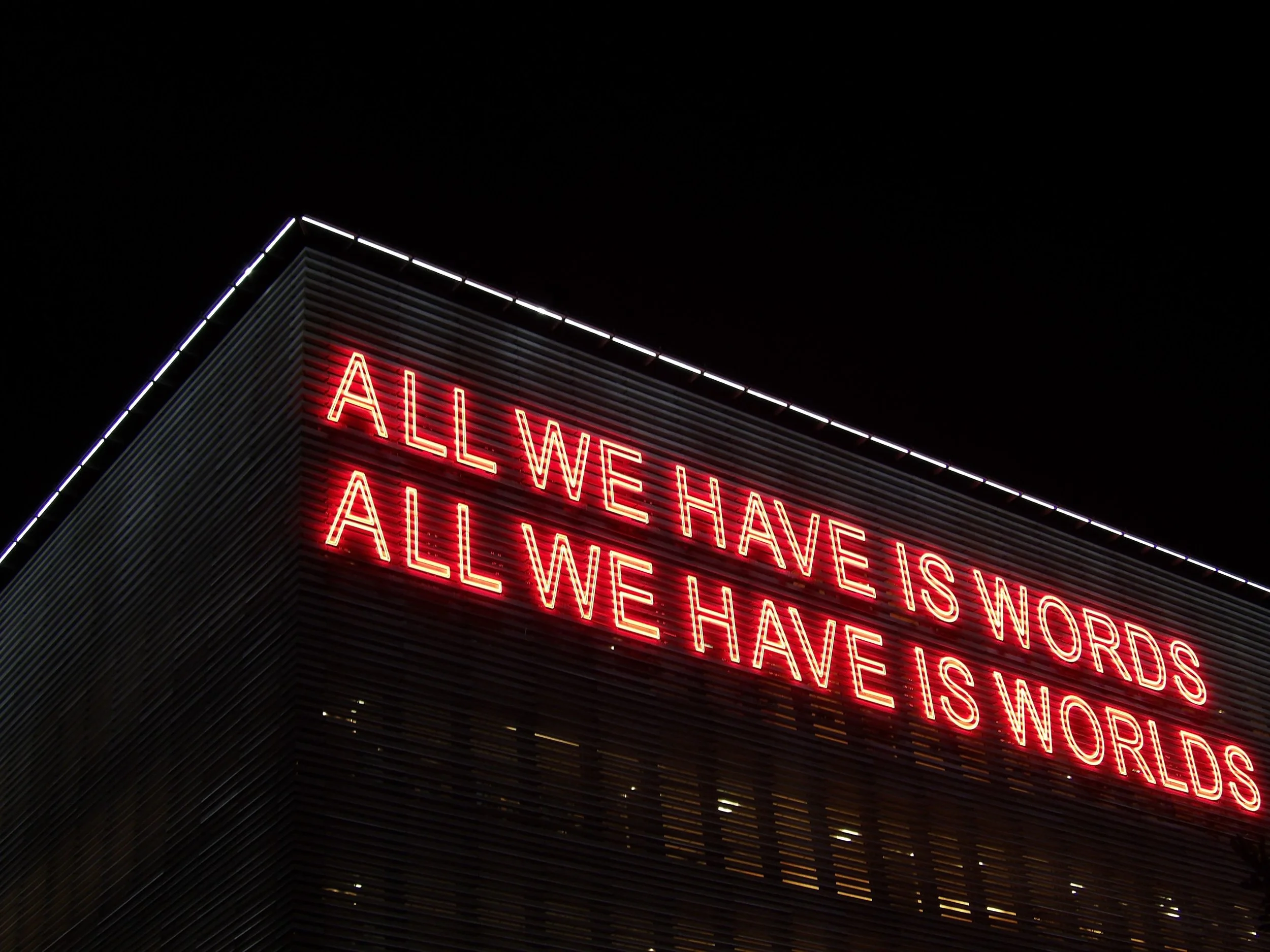A Thought About Words
My wife has some unique vocabulary.
Growing up in Pittsburgh she inherited something described as “Pittsburgh-ese.” If I were not married to this glorious, articulate, and honest woman I would think this was a made-up reality.
It is not.
Instead of rubber band, they say “gumband.” Instead of a thorn bush, it is a “jagger bush.” The Southerners have “y’all”, but Pittsburgh has “yinz.”
I remember a few conversations early in our marriage where she casually dropped these terms into conversation and I thought, “Do I need a thesaurus for this dear woman?” I learned them over time, however, and I grew to love the uniqueness of those words.
Of course, being from southern West Virginia I have my own.
My grandfather called massive rainstorms “frog stranglers.” Children – like me – doing unhinged kid things were called “heatherns” (like “heathen,” only folksier.)
The words we use matter. Words are the ways we describe what is real – whether seen or felt or just known intuitively by virtual of walking around in skin. The life we live creates a vocabulary by which we understand God, self, and others but also by which we grow and engage with God, self, and others.
In a recent podcast, technologist and artist James Bridle talked about how language began as simply sounds correlated to a reality early humans experienced. The idea of onomatopoeia (words that sound like the sound they refer to) is the earliest form of language, with later letters and characters evolving from shapes that connected to the world people knew. The letter “A” was built from a bulls-head. Q? formed after a monkey’s tail.
We have the words we have because we’re trying to make sense of a reality in which we’re all living.
However, since humans are the only ones who speak the formal kind of language they speak, our words are always going to be limited.
Giraffes have a whole different way of talking about reality, but it is different from the way we do it. They have a set of insights that we can never access, not truly, because we don’t speak the same language.
Ok, what in the world? If you’re still reading, you may be asking what the point of this is.
The journey of spiritual transformation is one that is built on words. Words that create worlds. Specifically, one Word that created and sustained and redeemed the world.
John, the friend of Jesus and the most mystical of the New Testament writers, says “In the beginning was the Word…” (John 1:1)
God became a kind of language. A human body speaking all the wideness and expansiveness of Divine reality into the hearts and minds of people who had their own language.
That’s why when John says “the Word became flesh and dwelled among us” he could have added a second layer that was “and that scrambled our vocabulary forever.” Why?
Because the words we know for love are limited by self-preservation.
The language of forgiveness finds its limit in our own anger, bitterness, and cynicism.
Generosity is a word we know but it refers to a reality in Jesus that is far beyond our charitable giving.
The spiritual journey is always inviting us to both learn new language and to realize that our language gets us close, but not all the way there.
When I say “rubbber band” and my wife says “gumband,” we know what we’re talking about. We also know that the word is not the thing – it is simply the way we talk about the thing.
The Word became flesh and showed us what the Divine is like, if the Divine could sweat, work, nap, and feel hunger.
But there is so much more. The word is not the reality, but it gets us right to the edge of that reality. We can peer over the edge and see things from a perspective that is always changing and growing.
Today, may you see your words as a vehicle. Words like “God,” “faith,” “hope,” and “love” are not final destinations but journeys. They are breathing and expanding invitations asking us to push further and further in, knowing that we may know the Word and the words but there is always more.
Gumbands. Frog stranglers. And the life everlasting.
